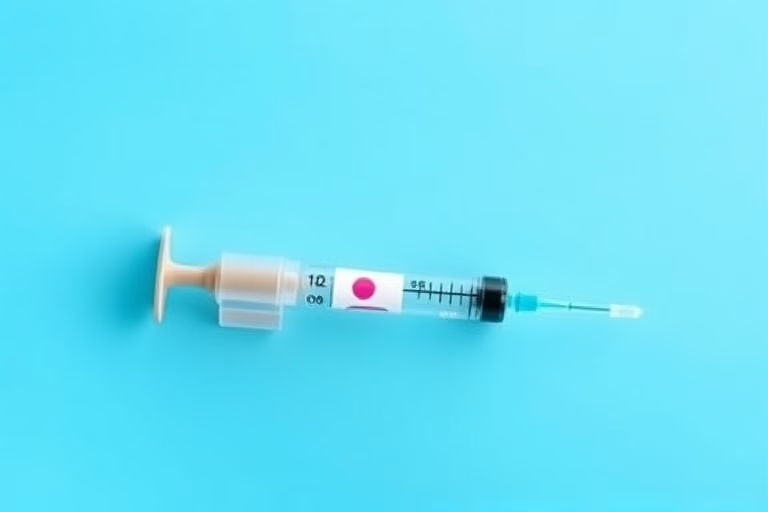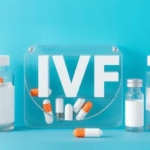We will be talking about IVF progesterone shots. These shots are a crucial part of in vitro fertilization (IVF) treatments, and they play a major role in supporting the early stages of pregnancy. Progesterone is a hormone that helps prepare the uterine lining for implantation and supports early pregnancy. In IVF cycles, progesterone is often administered through injections to ensure appropriate hormone levels in the body. The aim is to provide the best chances for embryo implantation and a successful pregnancy.
Understanding the role, processes, and implications of IVF progesterone shots can help individuals and couples undergoing IVF feel more informed and empowered. This post will explore the various dimensions of IVF progesterone shots, covering important considerations and common questions that arise during treatment.
What are IVF Progesterone Shots?
IVF progesterone shots involve administering the hormone progesterone through injections during an IVF cycle. These shots are essential for creating a suitable environment in the uterus for embryo implantation. The hormone progesterone is responsible for regulating several key aspects of the menstrual cycle and is critical during pregnancy. When embarking on IVF, the body may need additional support to maintain appropriate hormone levels, making these injections a vital part of the treatment process.
Progesterone can be administered in various forms, including intramuscular injections, subcutaneous injections, or even as vaginal suppositories. The method of administration typically depends on the preference of the fertility specialist and the specific circumstances of the patient.
IVF progesterone shots are vital for the successful management of hormonal levels post-ovulation and play a crucial role in the early stages of pregnancy. Regular monitoring is important to determine the right dosage and ensure the best outcomes.
Why are IVF Progesterone Shots Important?
The significance of IVF progesterone shots cannot be overstated. They provide essential hormonal support during the early stages of pregnancy. Here are some reasons why they are crucial:
When a woman undergoes an IVF cycle, progesterone is crucial after the eggs have been retrieved. This hormone helps transform the endometrium (lining of the uterus) into a receptive state for the embryo. Without sufficient progesterone levels, the chances of successful implantation are compromised, which can lead to failed cycles.
How are IVF Progesterone Shots Administered?
The administration of IVF progesterone shots requires careful attention to detail. Typically, the shots are given intramuscularly, injected into the gluteal muscle, or subcutaneously, injected into the fatty tissue. The healthcare provider will instruct the patient on the best technique for administering the shots.
The frequency and duration of the injections depend on individual treatment plans and may vary based on the patient’s response and cycle progression.
Patients are often advised to store the shots at room temperature and shake the vial gently before administration. It can also help to apply a heating pad to the injection site before giving the shot to minimize discomfort.
Common Side Effects of IVF Progesterone Shots
Like any medical treatment, IVF progesterone shots can have side effects. Common side effects include:
Most side effects are mild and temporary. It is essential for patients to communicate any concerning symptoms or reactions to their healthcare provider for appropriate management. Regular monitoring and guidance can help ease the process.
Alternative Methods of Administering Progesterone
While IVF progesterone shots are common, alternative administration methods are available. Some patients may opt for:
Choosing the best method can depend on individual preferences, medical history, and advice from the healthcare provider. All methods aim to provide adequate progesterone support throughout the IVF process.
How Long Do Patients Need to Take IVF Progesterone Shots?
Determining the length of time for IVF progesterone shots can vary from person to person. Generally, patients will start receiving progesterone injections about 3 to 6 days following egg retrieval, continuing until around 8 to 10 weeks of pregnancy. The healthcare team will monitor hormone levels and the growth of the pregnancy to tailor the dosing and duration accordingly.
It is essential for patients to adhere to the prescribed regimen as it increases the likelihood of a successful pregnancy while ensuring adequate hormonal support throughout the early stages.
What to Expect During a Progesterone Injection Cycle
Understanding what to expect during a progesterone injection cycle can alleviate concerns. Patients should prepare for:
This structured support framework aims to optimize embryo implantation chances and bolster early pregnancy health.
Final Thoughts
In conclusion, IVF progesterone shots play a fundamental role in supporting the hormonal environment necessary for successful embryo implantation and early pregnancy. Understanding the process, significance, and potential challenges involved can empower individuals and couples undergoing IVF. It is essential to engage with healthcare providers to receive personalized treatment plans tailored to meet individual needs.
Research and ongoing studies continue to improve our understanding of hormone therapies in reproductive medicine, which may lead to enhanced outcomes for those pursuing parenthood through IVF methods.
Ultimately, being informed, proactive, and receptive to professional guidance can significantly enhance the chances of a successful IVF journey.
Frequently Asked Questions
Further Reading
What Type of Psychotherapy Is Best for Anxiety?







